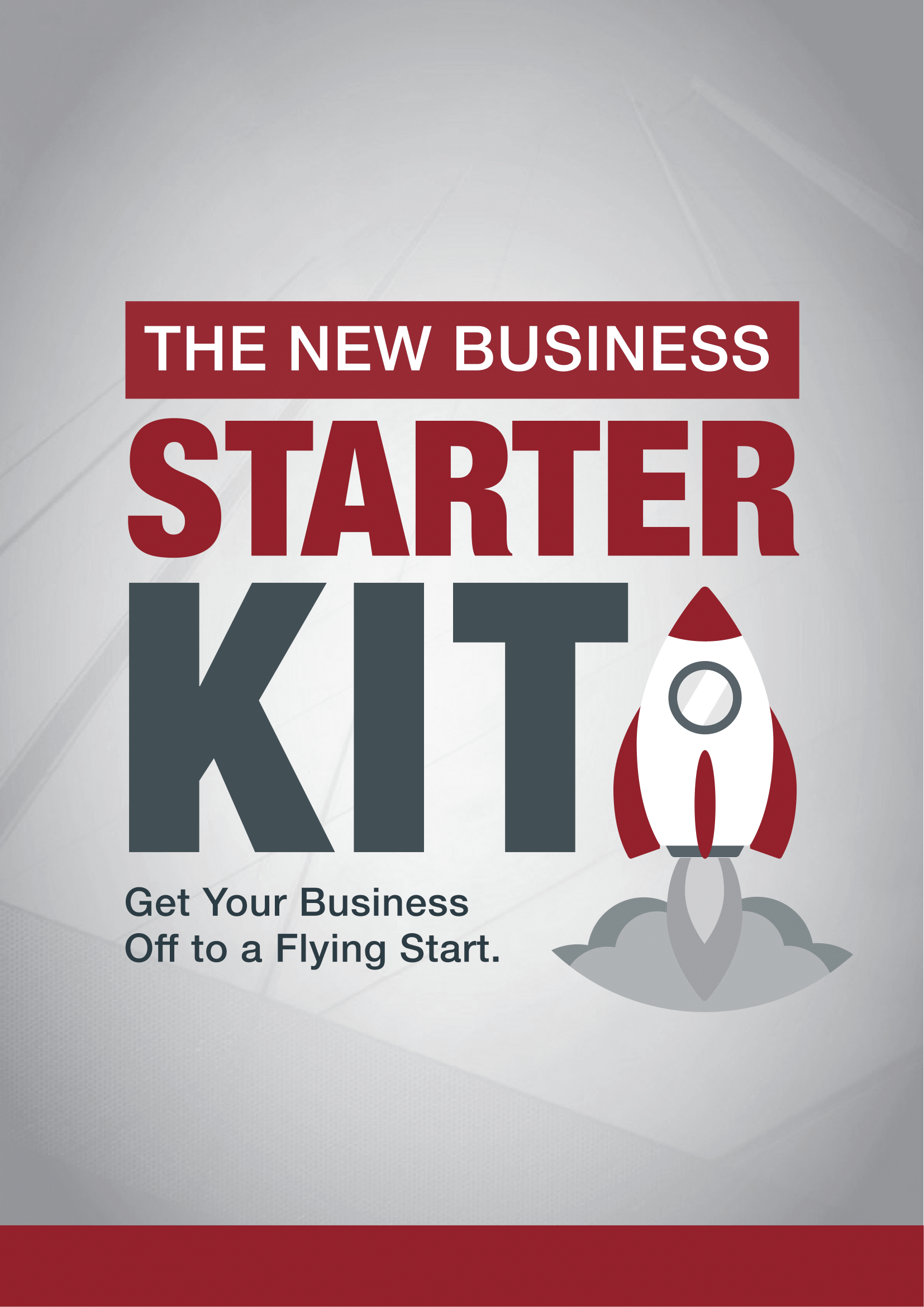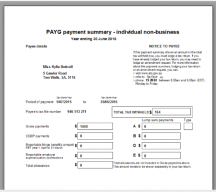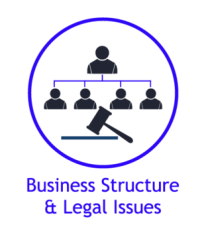Starting or Buying a Business
Starting or buying a business demands considerable research and planning.
 It also involves financial risk and the fact is, enthusiasm, money, hard work, talent or a great idea is not enough to guarantee success in a
new business.
It also involves financial risk and the fact is, enthusiasm, money, hard work, talent or a great idea is not enough to guarantee success in a
new business.
 To
succeed you need the right accounting and legal advice because there are a number of issues to address including your choice of business
structure, tax registrations, insurances, software, finance, contracts and marketing.
To
succeed you need the right accounting and legal advice because there are a number of issues to address including your choice of business
structure, tax registrations, insurances, software, finance, contracts and marketing.
Successful businesses are characterised by a clear business plan and they produce quality products or services. The business owners also
understand their market and their responsibilities as an employer. They keep up to date, keep quality business records and are good money
managers. Here at the JTU Accounting Group, we have mentored a large number of clients through the business start up phase and the
firm has earned a reputation as business start-up specialists. Our range of practical templates, tools and check-lists have been
specifically developed to help our clients starting or buying a business.
The business landscape has changed dramatically thanks to technological change and the internet. Your website
is now your 'shop front' and depending on your target market, social media could be your most important marketing medium. The old saying,
‘people don’t plan to fail, they just fail to plan’ still applies and it remains both valuable advice and a warning for
people intending to start a business.
If you are starting or buying a business the evaluation and establishment phases can be periods of great anxiety due to a combination of
excitement, uncertainty and financial risk. Clearly the risks are real and the Australian Bureau of Statistics suggest that 42% of new
businesses won’t be around in 3 years time. If you think buying a franchise reduces the risk consider the results of a franchise study
in 2010 that revealed:

· Only 81% of franchisees are profitable
· 58% of franchisees generate a profit of less than $50,000 per annum
· 3% of franchisees generate a loss of more than $50,000
Clearly there are no guarantees in business and while the small business journey can be challenging, it can also be very rewarding. Our role is to support and guide you through the process and just like a game of chess, success starts with the right opening moves. The failure rate is high but we still find many people starting or buying a business don't seek or receive the right financial and legal advice. Having assisted so many people in your situation you can benefit from our experience.
We are not your average firm of Accountants that just keep the score because our client brief includes helping you understand your numbers and the four ways to grow your business. We recognise the difference between success and failure could be your marketing strategies, website or social media presence.
Here at the JTU Accounting Group we are passionate about your business success and to help our clients we have published a comprehensive guide titled 'The New Business Starter Kit'. It provides valuable information on a number of key issues that confront a new business owner including :
- The Taxation and Legal Aspects associated with the Alternative Business Structures
- Essential Tax and Business Registrations when Starting or Buying a Business
- Employer Obligations including Superannuation, PAYG and WorkCover
- Record Keeping Requirements and Accounting Software Options
-
Legal Issues including Wills, Contracts and Leases

- Permits & Registrations - Council & Government
- Buying a Business or Franchise
- Preparing a Business Plan
- Key Business Insurances
- Preparing a Cash Flow Budget
- Vehicle & Equipment Finance Options
- Alternative Methods of Claiming your Motor Vehicle Expenses
You can download a copy of this e-book from the panel of our website.
Business Plan & Cash Flow Budget

While the main reason most people prepare a business plan is to raise finance, your business plan should also prove the viability of your business venture. Included in the business plan is a cash flow budget and a positive cash flow is an absolute necessity if your business is to succeed. Positive cash flow just doesn’t happen, it needs to be planned. That’s why we strongly recommend the preparation of a 12 month cash flow budget before you start the business. In fact, any business that fails to accurately forecast its cash flow in the first 12 months is on a collision course because without realistic cash flow projections, management is unable to identify future cash shortages.
The cash flow budget is based on a number of assumptions regarding the expected future performance of the business. The assumptions must be realistic and supported by research, available data plus known facts such as rentals or forward contracts. The information in your cash flow budget is designed to:
- forecast your likely cash position at the end of each month
- identify any fluctuations that may lead to potential cash shortages
- plan for your taxation payments
- plan for any major capital expenditure, and
- provide prospective lenders with key financial information
Of course, positive cash flow alone is not enough. The business must be returning a profit and the long term trend for both must be positive.
Employing Staff
Under common law principles, You and your employees have certain obligations to each other . You also have obligations under Federal and State Territory laws, industrial awards and agreements, tribunal decisions and employment contracts.
Do You Need to Register For PAYG Withholding?
If you have employees you must register for PAYG Withholding and withhold amounts including:
· Income Tax for employees (including working Directors of a Company)
· Withhold 47% from payments to suppliers who cannot quote an ABN
 Before you withhold any payments, you need to register for PAYG Withholding. Like your GST registration, this can be completed at the same time and means that you will have either quarterly or monthly reporting requirements. If you are a Sole Trader or Partner, the Tax Office do not regard you as your own employee. You ‘draw’ money from the business to live on but this is not technically seen as normal ‘salary and wages’. As such, there is no need to register for PAYG Withholding and withhold amounts from your drawings unless the above examples apply.
Before you withhold any payments, you need to register for PAYG Withholding. Like your GST registration, this can be completed at the same time and means that you will have either quarterly or monthly reporting requirements. If you are a Sole Trader or Partner, the Tax Office do not regard you as your own employee. You ‘draw’ money from the business to live on but this is not technically seen as normal ‘salary and wages’. As such, there is no need to register for PAYG Withholding and withhold amounts from your drawings unless the above examples apply.
Do You Have to Pay Superannuation for Employees?
The Superannuation Guarantee Scheme, administered by the Taxation Office, requires all employers to provide a prescribed minimum level of superannuation support for each employee (and some contractors), subject to limited exemptions including :
- You paid a salary or wage of less than $450 in a month, or
- The employee is Under 18 years of age and worked less than 30 hours a week, or
- The employee is Aged 70 years or over
Employers must make the superannuation contributions on at least a quarterly basis. Payments must be made within 28 days of the end of each quarter.
- 1 Jul – 30 Sep due by 28 Oct
- 1 Oct – 31 Dec due by 28 Jan
- 1 Jan – 31 Mar due by 28 Apr
- 1 Apr – 30 June due by 28 Jul
If you fail to pay the minimum level of support (9.5% for the year ended 30th June 2018) by the prescribed deadline you are liable for the Superannuation Guarantee Charge which is equivalent to the amount of the shortfall plus an interest component and an administrative charge.
Insuring Your Business
I nsuring your business premises and your assets is a critical part of establishing a business. For new business owners insurance can seem like a costly addition to an already long list of expenses, however, if your business is uninsured you may never financially recover from a natural disaster, burglary, act of vandalism, fire or storm.
nsuring your business premises and your assets is a critical part of establishing a business. For new business owners insurance can seem like a costly addition to an already long list of expenses, however, if your business is uninsured you may never financially recover from a natural disaster, burglary, act of vandalism, fire or storm.
Asset protecting includes addressing your specific business insurance needs and making sure you are covered for the unexpected. The size and nature of your business will generally determine the type of insurance coverage you need and it is important not to let your coverage fall behind as your business grows or diversifies. A periodic review of your insurance policies is recommended for this purpose and some or all of these additional insurances could be required depending on your circumstances:
- Public liability to cover customers, clients and visitors
- Cover for contents, equipment, stock, furnishings and fixtures
- Professional indemnity insurance if your business is in a service industry
- Product insurance if your business is in a manufacturing industry
- Motor vehicle insurance if your vehicle is used for business purposes
- Personal injury and/or income protection, particularly if WorkCover is not applicable to your business
The following is a guide to some of the most common types of business insurance available.
Personal Injury - Income Protection Insurance
Insurance industry statistics tell us that on an average day in Australia:
- 214 people are diagnosed with some form of cancer
- 41 people undergo coronary artery by-pass surgery
- 35 people between the age of 35 and 69 will survive a heart attack
- More than 25% of the population will be disabled for more than three months before turning age 65 and
- 60% of Australians will be disabled for more than one month during their working life.
Income Protection Insurance provides a replacement income if you are unable to work at full capacity, or at all, due to sickness or injury. Personal Injury and Income Protection Insurance is often appropriate for sole traders and partners and is a vital link in providing you and your family with a regular income stream during times of illness or injury. You can be insured worldwide, 24 hours a day, seven days a week. There are a number of variables that will impact on the premium you pay including:
- Monthly Benefit – Is the monthly amount of replacement income you will be paid. The maximum is 75% of your monthly gross income (i.e. before tax)
- Benefit Period – Is the length of time your replacement income will be paid for any one uninterrupted claim. Benefit periods can be 2 years, 5 years or to age 65 years. The longer the benefit period the higher the premium.
- Waiting Period – Is the length of time you must wait before your replacement income will commence. Choices of waiting period are 2 weeks, one month, two months, three months, six months, one year or two years. The shorter the waiting period the higher the premium.
- Type Of Work – Manual/Labour work will attract a higher premium than office type work
- Male Or Female – There are variances between the male and female premium costs
- Your Age – The older you are the higher the premium cost
- Smoker – People who smoke attract a higher premium than non smokers
- Pre Existing Medical Conditions – If you have a pre-existing medical condition, this may affect the cost of insurance. Depending upon the actual condition and the severity of it, you may be considered at normal premium rates or the Insurance Underwriters may deem you to be a higher medical risk. Therefore they may offer you a loaded (increased) premium or they may offer you cover at ordinary rates but exclude anything connected to your pre-existing condition, or they may decline your application for cover totally.
Employees may be entitled to a limited amount of sick pay from their employer but worker’s compensation only covers you for work related injuries, a small percentage of the causes of disability. On the other hand, an income protection policy will pay you up to 75% of your income (salary plus super and any other benefits) allowing you to maintain your lifestyle and keep paying your mortgage and other debts.
Legal Issues
There are a number of key areas where a solicitor can assist you such as contracts and agreements, negotiating your commercial or retail lease, insurance claims and representing your interests in dispute resolutions with authorities or other businesses. If you require a solicitor please contact our office for a referral.
Contracts
A contract is a binding legal agreement, which is created when there has been an offer, an acceptance of the offer, consideration (usually the price of goods or services supplied) and an intention by the parties to enter into a legal relationship. There are many types of contracts that will affect your business. Not only will you contract with your customers but you will potentially also enter into agreements concerning contracts:
- for the purchase of a business
- for the lease of your business premises
- for the supply of financial services such as an overdraft facility
- with suppliers and customers including the terms of trade
- of employment with your employees
- for the supply of telephone, internet and utility services
With customers, it is important to establish a system that records your terms of trade so that you avoid disputes later on. It can help with the collection of bad debts and the system could be as simple as providing a quote that the customer accepts by signing. Commonly the terms of agreement are often specified on the back of quotations. Remember, if a contract has not been signed it does not necessarily mean that there is not a legal contract. A binding legal agreement may have been established by other means, such as the conduct of the parties and what was said between them.
Leases
A lease is a special type of contract between the lessor (the owner) and the lessee to use the property. A lease can relate to land and buildings or to personal property such as motor vehicles, photocopiers and telephone systems. Where the lease relates to land and buildings the owner is called the ‘landlord’ and the lessee is called the ‘tenant’.
The terms of the lease are generally negotiated between the landlord and the lessee and the main issues that need to be addressed in the lease include the term of the lease, the amount and frequency of the rent, details of the tenant's responsibility for the property outgoings, permitted uses of the property, the option if applicable and the bond or bank guarantee if applicable. It is advisable to consult with a solicitor to assist you in negotiating the terms of your lease.
Most leases hold the lessee responsible for keeping the premises, fixtures and fittings in good repair. Many leases provide for payment of all or a portion of the rates, insurance, maintenance and so on. Make sure these are clearly stated as they are additional to your base rent. If you vacate the premises before the lease expires you may still be liable for payment of rent and ongoing costs if a new tenant cannot be found.
Before signing the lease the lessor must provide the lessee with a signed copy of the lease. If the lease is for a retail shop, the lessor is also required to provide a Disclosure Statement to the lessee at least seven days before the lease is entered into. Both parties should make sure that they speak to their solicitor, accountant, the local council (to be sure there is approval for the use) before they sign the lease.
Do You Need A Will?
Making a Will is something we all know we should do, but like exercising daily and eating a balanced diet, it’s something many of us never get around to until it’s too late. It is one of the most important documents you will ever sign because you are ‘giving away’ almost everything you own. It is therefore important to ensure it reflects your current wishes and distributes your estate in the most beneficial and tax effective way. You must be 18 years of age and be of sound mind, memory and understanding to make a Will.
A Will is the foundation of good estate planning. It’s critical to obtain competent legal help in drafting your Will because a poorly drafted Will can be the cause of endless trouble for your surviving family and beneficiaries. Dying without a Will can be costly and creates added stress for your family at a time that is already difficult. In addition, you risk your estate being distributed according to strict government requirements rather than your wishes. This makes your estate difficult to administer and it will take longer to be finalised, resulting in increased costs. You may also lose the choice of who benefits from your estate.
What do you need to consider?
- Do you have an effective, current Will?
- Do you believe you may require the creation of more complex trusts within this Will?
- Do you have beneficiaries with special needs?
- Are you concerned there won’t be enough money to satisfy your family’s needs in the future?
- Do you need to consider any tax or other implications of your estate planning arrangements?
- Who is to benefit from your Life Insurance and Superannuation?
- Do you have property held as tenants in common?
- Does anyone but you know where your tax records and supporting tax documents are located?
- Does anyone know who your Accountant is? Your Lawyer? Your Broker?
We recommend you review your Will every couple of years, or whenever your circumstances change such as starting a business. Call our office if you would like to discuss any aspect of your Will or require a referral to a Solicitor to draft or review your Will.
Full copies of the ‘Starting or Buying a Small Business’ are available from our office.
 Over the years we have mentored literally hundreds of people through the start up phase of their business lives and have established a
reputation as a business start-up specialist. We have developed a number of practical tools and checklists designed to help you fast track
your business success and contact us today if you want to get your business off to a flying start.
Over the years we have mentored literally hundreds of people through the start up phase of their business lives and have established a
reputation as a business start-up specialist. We have developed a number of practical tools and checklists designed to help you fast track
your business success and contact us today if you want to get your business off to a flying start.
We invite you to book a FREE, one hour introductory consultation to discuss your business needs. At this meeting you can expect practical business, tax, marketing and financial advice designed to help you accelerate your business success. To book a time, call us today on (03) 9878 5444 or complete your details in the box at the top of this page.




